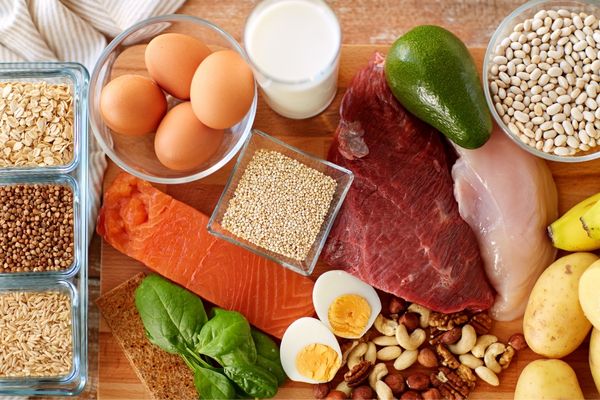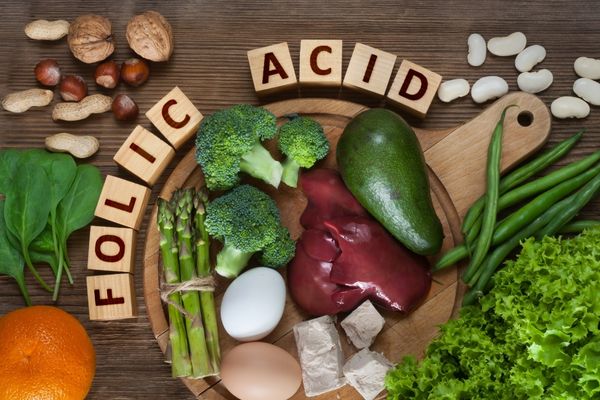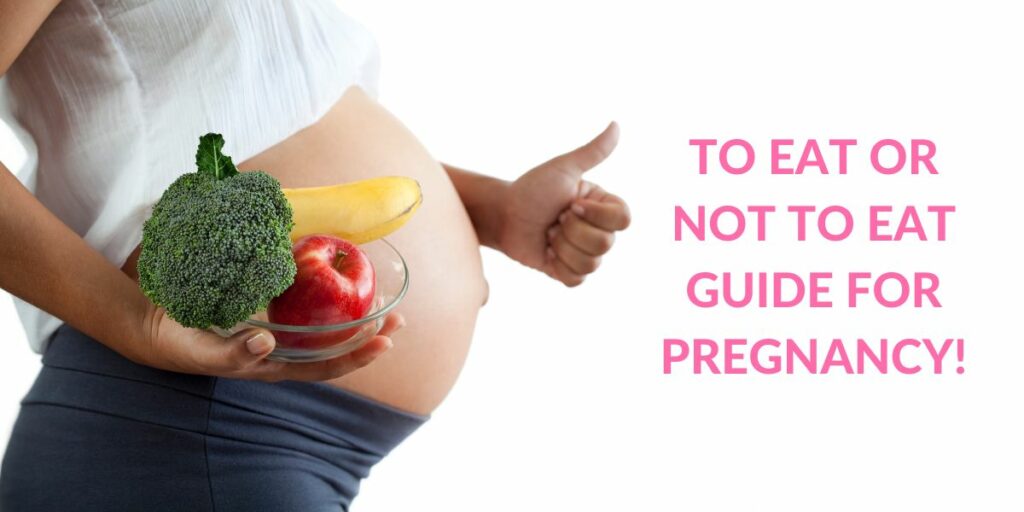TO EAT OR NOT TO EAT GUIDE FOR PREGNANCY!
Pregnancy diet does not mean that you need to start eating for two. Opting for nutritious food and having a well balanced diet all throughout the pregnancy is what counts!
Becoming a mother is one of the most divine experiences for a woman. The woman’s body slowly and gradually prepares itself for the ‘D’ day! She may experience physiological and psychological changes and fluctuations in her food choices and sleep cycles. But all in all it’s an experience that only women can have!
You may crave for certain foods that you disliked before you became pregnant and have aversions towards your favorite foods. It’s always difficult to understand how much is enough and where to stop. Would-be mothers are in a dilemma as to whether they should have eggs or are they going to increase their cholesterol or whether fishes are good or their mercury content may be harmful. Whether they should eat the mouth watering street foods that they are craving for or will it lead to upset stomach. Well these worries are all universal and that’s why taking proper guidance from an expert becomes important. It’s also important to sit back and relax and not get stressed about everything, everyone around you has to say!
FOODS TO FEAST ON:
Proteins: When one is expecting, their protein requirements increases. Proteins are required for the formation of fetal tissue; it is needed for energy and for repair and maintenance of body fluids which in turn help in maintaining normal blood pressure and preventing pregnancy swelling.
Requirement: One must get around 20-25% (60-100g depending on body weight, physical activity and trimester), of the total calorie intake from proteins but it has to be prescribed by your doctor.

Where to get it: pulses, eggs, lean meat, soy, dairy products, seeds, and nuts are some protein-rich foods.
Calcium: Calcium builds strong bones and teeth. It supports healthy functioning of the circulatory, muscular and nervous system (nerve transmission) and blood clotting.
Requirement: 1200mg as recommended by WHO, but it has to be prescribed by your doctor

Where to get it: non fat/low fat dairy products (especially curd as it also comes with benefit of pro-biotics which is helpful in providing healthy gut microbes and soothing the gut lining).
Non dairy : Soy, almonds , brazil nut, seeds, dark green leafy vegetables ( spinach, ladies finger, broccoli), figs, oranges, blueberries.
Folate and folic acid: Folate is a B vitamin which helps in preventing neural tube defects and in making extra blood in your body during pregnancy.
Folic acid supplementation is known to decrease the risk of premature birth and having a low birth weight baby.
Requirement: 600-1000mcg throughout pregnancy according to The American College of Obstetricians and Gynecologists, but it has to be prescribed by your doctor

Where to get it: Green leafy vegetables, avocados, lentils, beans, and cereals are some foods that contain adequate folic acid.
Vitamin D. Works along with calcium to help build your baby’s bone and teeth. Adequate levels help prevent preeclampsia, gestational diabetes and risk of cesarean section.
Requirement: As prescribed by your doctor

Where to get it: Sun exposure for 10 minutes is a good idea. Fatty fish like salmon, mackerel and eggs.
Iron: Your body’s blood is now directed to your baby also. To meet the additional requirements and to have good hemoglobin levels consumption of iron is necessary.
Requirement: As prescribed by your doctor, based on your hemoglobin levels.

Where to get it: green leafy vegetables, nuts, cereal, meat, dates, and seafood, organ liver, egg yolk.
Other nutrients: that should be present in your diet at this time, include fibre to prevent constipation, iodine, magnesium, Omega 3 (DHA), and vitamins like vitamin C. Though it is not recommended to indulge in foods containing saturated fats and excessive fried items, do add a healthy intake of good fat such as ghee in your diet. Water and fluids
Small frequent meals which are evenly spaced should be eaten during pregnancy and water should be consumed adequately to prevent or minimize pregnancy concerns like heartburn, constipation, nausea, and vomiting.
If at any point in your pregnancy you feel concerned about not eating right due to health or other reasons then discuss it with a clinical dietician.
FOODS TO STAY AWAY FROM
Alcohol consumption may lead to Fetal Alcohol Syndrome (FAS). An ounce of prevention is better than a pound of cure.

Excess Caffeine- it acts a diuretic. It also constricts the blood vessels in the uterus and placenta leading to lesser blood supply to the fetus and in-turn affect its growth.

High mercury fish– affects the developing nervous system of the fetus
Canned foods- may be lifesavers on days when you have busy working. But they have a chemical lining of Bisphenol A (BPA). High levels of BPA exposure in-utero has been associated with child obesity, reproductive complications, early puberty in girls, depression and anxiety, diabetes, and heart disease.
Unpasteurized foods such as unpasteurized milk or cheese or fruit juices may carry the potential risk of listeriosis and bacterial contamination which has potential life threatening risk for the unborn baby

Raw eggs- a big NO to consumption of raw eggs as it may be contaminated with Salmonella bacteria. Symptoms of salmonella infections include fever, nausea, vomiting, stomach cramps, and diarrhea.

Raw or Undercooked meat is most likely to cause food poisoning. They carry risk of infections like E. coli and Salmonella bacteria, which can make a pregnant woman very sick. It’s better to consume properly cooked meats.

Raw vegetables or salads should be consumed immediately after cutting and should be avoided while eating outside so as to prevent infections.

BABY LET’S MOVE!
Physical activities like yoga, deep breathing, walking, swimming, are essential for the complete development of mother and baby. But it should be done with the consent of your doctor and under proper supervision. Fitness, combined with a healthy diet, can make pregnancy enjoyable.

This is general information issued in the public interest. Please contact your doctor for more details.





